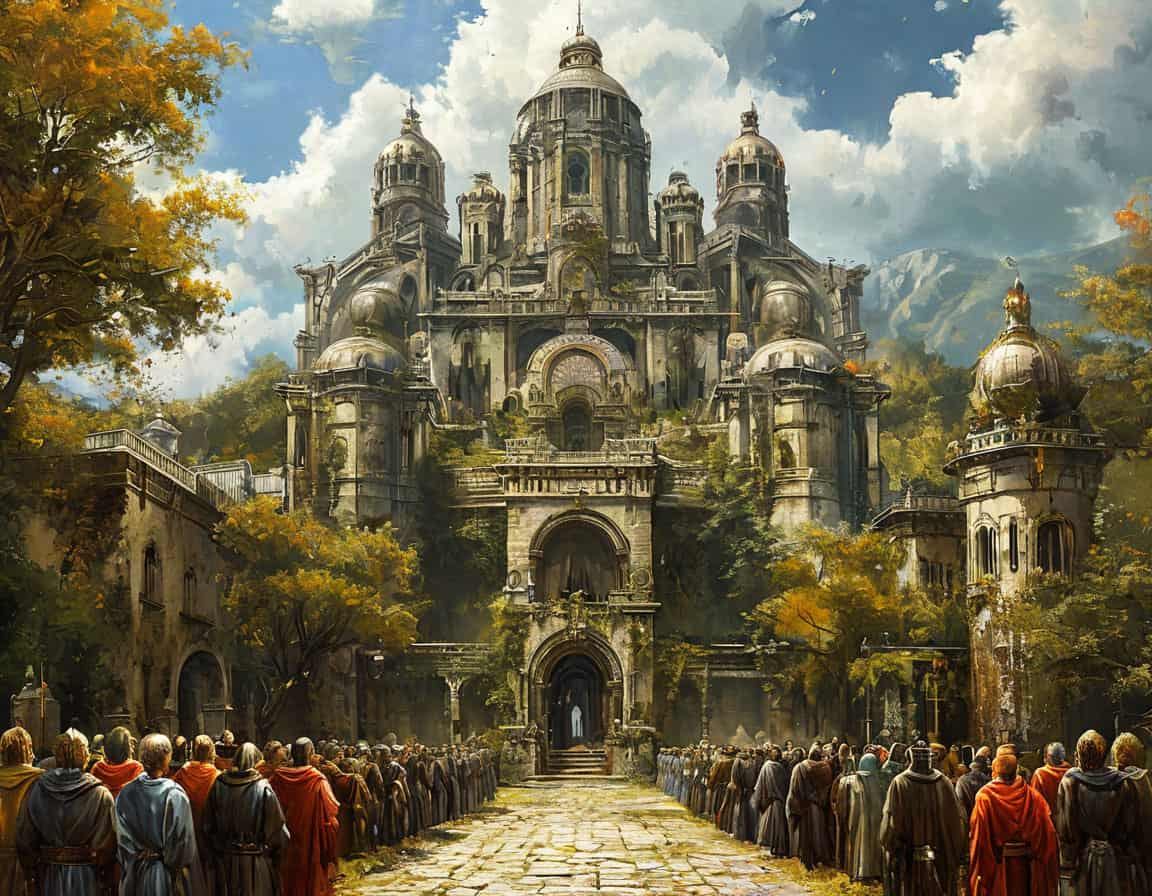Imagine this scenario for a moment: instead of the usual politicians debating over policies and shaking hands in public, you’ve got religious figures calling the shots, basing their decisions on what’s seen as divine wisdom. It’s an intriguing concept when you think about it, isn’t it?
That, in a nutshell, is what we’re talking about when we mention a theocracy—a setup where governance runs through the lens of religion, and the people leading are often spiritual authorities.
But it’s important to note: while the idea might sound intriguing, it’s definitely sparked its fair share of arguments over the years. Some folks see it as a pathway to a more ethical and unified society, while others are more concerned about freedom and whether progress might get, well, a little stuck.
Let’s analyze this in more detail and look at the good, the not-so-good, and everything in between so you can figure out where you stand on it.

What is Theocracy?
Alright, first off—what exactly are we looking at here?
The word itself comes from Greek roots: theos, meaning God, and kratos, which is about ruling or having authority. So, basically, a theocracy is a system where religious principles aren’t just for Sunday mornings—they’re woven right into the fabric of government.
It can be understood as follows: in a theocracy, politics and religion are basically two sides of the same coin. Laws are inspired by holy texts, and the people in charge might see themselves not just as leaders but as spiritual guides.
Historically, this idea has been around forever. Remember Ancient Egypt and their Pharaohs who were seen as god-kings? Fast forward to today, and you’ll see modern examples like Iran or even Vatican City, where religion is front and center in shaping how things run.
What Makes People Like the Idea?
Why might someone view this system as a viable option? Well, there are a few reasons that kind of stand out.
Moral Ground Rules
It must be acknowledged—having a clear set of do’s and don’ts, rooted in some higher principles, can feel reassuring. In a theocracy, these guidelines often promote values like kindness, fairness, or being truthful. It’s like having a moral cheat sheet built right into the law.
Community Vibes
An important aspect to consider is: shared beliefs can create a strong sense of togetherness. When a society is on the same spiritual page, it’s often easier to pull together and avoid the constant back-and-forth that comes with clashing ideologies.
Decisive Decision-Making
In this setup, decision-making can sometimes feel refreshingly straightforward. With fewer people arguing over options, leaders can act decisively, which can be a huge plus when emergencies come knocking.
Reduction in Crime Rates
Strict religious laws, paired with the possibility of pretty tough consequences, often make people think twice about doing anything shady. Fewer crimes? That’s a win for everyone.
Keeping It Classic
If you’re someone who’s into preserving traditions and sticking to cultural roots, this system might sound like your jam. Theocracy tends to put a lot of emphasis on keeping those customs alive, no matter how much the world outside is changing.

The Bumps in the Road
Of course, like anything else, there’s a flip side. And honestly, theocracy comes with some pretty big challenges.
Limited Religious Freedom
This is where things get tricky. You don’t really get to pick and choose what you believe in—at least not openly. If your faith doesn’t align with the dominant religion (or if you don’t believe in anything at all), it can feel like you’re always on the outside looking in.
Who Watches the Leaders?
When power’s concentrated in the hands of a small group, and they don’t really answer to anyone, things can go sideways. Without checks and balances, there’s always the risk of leaders putting their own interests ahead of the people.
The Human Factor
Let’s not forget: religious leaders are just people, too. They’re not immune to things like greed or bad judgment, which means corruption can creep in even here.
Change? Not So Fast
Since theocracy tends to prioritize tradition, shaking things up isn’t exactly easy. Progress in areas like science, social policies, or technology can feel like it’s moving in slow motion—or worse, not at all.
A Bit Too Samey
If you’re someone who values diversity in thought, lifestyle, or beliefs, theocracy might feel a bit stifling. It thrives on unity, but that unity often comes at the cost of individuality.
| Pros |
Cons |
|---|---|
| Laws are based on religious values such as honesty, kindness, and fairness. | Freedom of choice is limited, and religious norms are imposed on all citizens. |
| Unites society through shared beliefs and traditions. | Leaves little space for diverse opinions, lifestyles, or religions. |
| Decisions are made quickly by religious leaders without lengthy debates. | Power is concentrated among a small group, with minimal checks and balances. |
| Maintains cultural identity through religious customs and traditions. | Resists innovation and new ideas, slowing down progress in science and technology. |
| Strict laws and severe punishments often lead to lower crime rates. | Risk of corruption or misuse of power by religious authorities. |
Comparing It to Other Systems
Let’s see how theocracy stacks up against some other ways to run things:
- Oligarchy: This is also about power being in the hands of a few, but instead of religious figures, it’s usually wealthy families or elites pulling the strings.
- Autocracy: Here, it’s one person calling all the shots, no religious angle needed. Whether they’re a dictator or just super charismatic, their rule doesn’t come from divine authority.
- Democracy: This one’s all about choice and public participation. Freedom of speech? Yes, please. It’s the polar opposite of theocratic rule in that sense.
So, Is It Still a Thing?
You’d think a system this old might have faded out by now, but nope—it’s still around. The challenge today is figuring out how to balance religious traditions with modern values like human rights and technological progress.
Some theocracies are trying to adapt, tweaking their structures to allow for things like limited freedoms or small checks and balances. It’s a bit of a tightrope act, but it shows they’re not completely stuck in the past.
Could This System Work for You?
So, where does that leave us? Theocracy’s got its perks—clear values, a sense of unity, and all that—but it’s not without its downsides, like restricted freedoms or slow progress.
Would I personally sign up for life in a theocracy? That really depends on what matters most to you. If tradition and shared beliefs are your thing, it might feel like home. But if you’re all about innovation and doing your own thing, it’s probably not the best fit.
What about you? Can you imagine living under this kind of setup, or does it sound like something best left to history books?





